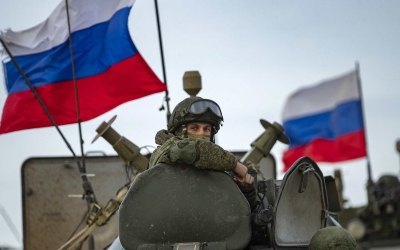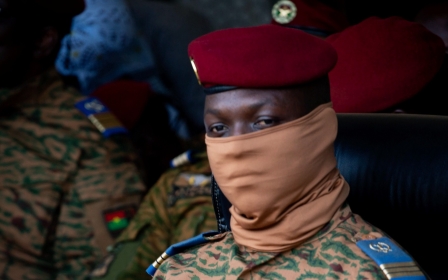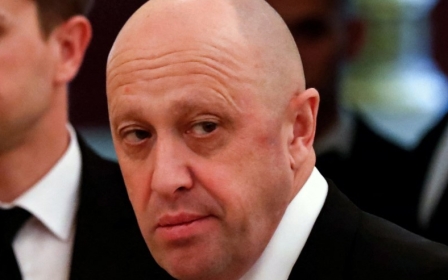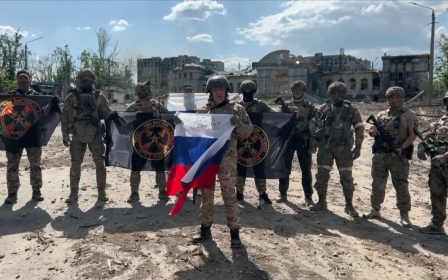Russia's Wagner hydra has not yet been slain
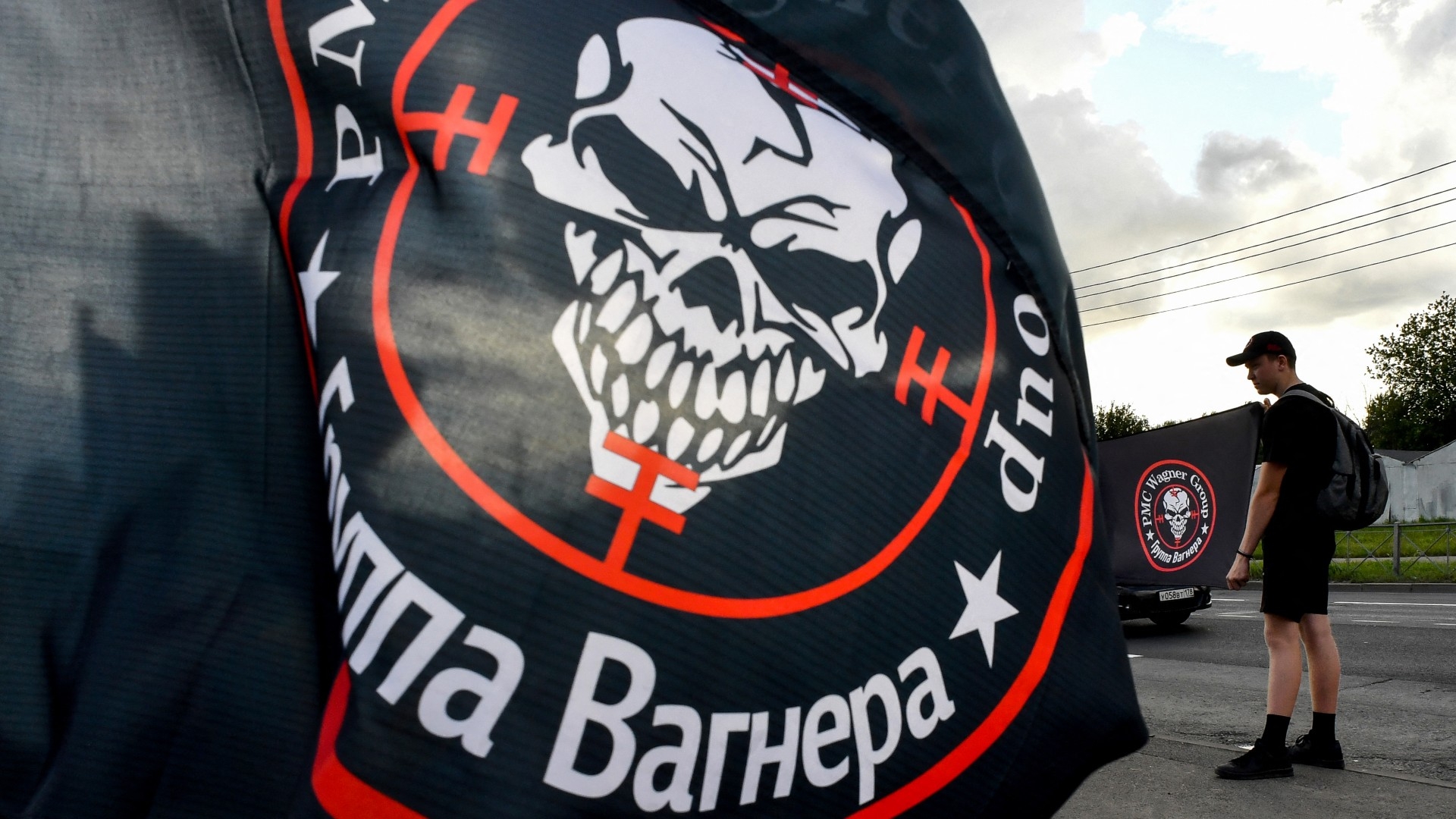
The recent death of Yevgeny Prigozhin raised hopes in many western capitals that the Frankenstein's monster against which they had struggled to compete in Africa and the Middle East - the Wagner Group - would disintegrate.
Yet, while the Russian state’s efforts to rein the network in have begun, it would be counterproductive to Russia’s power projection in the Global South to make the organisation subordinate to a failing military apparatus back home.
Not only has the web of around 400 companies within the Wagner network been underestimated, it has often been conceptualised through the narrow analytical lens of western statecraft, which was founded on parameters of hierarchy, dichotomies of state versus non-state (or public versus private), state-centric definitions of strategy, and western military notions of effective control.
Wagner in Africa and the Middle East must first and foremost be understood as a heterarchical structure of different entities that operate as nodes in a network, woven together via sometimes firm - and often fairly loose - connections.
While Prigozhin, via his many different entities, appeared as the central hub in the network - the node with the most connections - the Wagner network is far from a hierarchical entity.
New MEE newsletter: Jerusalem Dispatch
Sign up to get the latest insights and analysis on Israel-Palestine, alongside Turkey Unpacked and other MEE newsletters
Unlike Russian state institutions, including the military, Wagner operates with fairly flat hierarchies, providing different nodes in the network with degrees of autonomy that appear to be at odds with the idea of an authoritarian state such as Russia.
The creation of Wagner as a loose network of entities tied to the Kremlin only via a confidant of President Vladimir Putin, such as Prigozhin, was deliberate. The Kremlin sought a means of statecraft in Africa and the Middle East that could provide plausible deniability vis-a-vis the global public, and discretion with regards to a Russian public that had raised concerns when bodybags of Russian soldiers were sent home from the frontlines of Syria in 2018.
Red lines
At the start of its deployments in Ukraine and Syria, state funding remained the backbone of Wagner’s operations. But the experience of using a Wagner-owned extraction company as an intermediary to sell security and military services to the Assad regime via oil concessions changed the business model, empowering the network to become self-reliant.
Allowing Wagner to connect with local elites in Africa and the Middle East was in keeping with Russia’s structure as a network state of hybrid horizontal and vertical integration around the Kremlin. Entities enjoy a degree of freedom to manoeuvre within clearly defined parameters, policed by a coercive parallel state infrastructure. In short, as long as red lines were not crossed, Wagner could develop opportunities as it saw fit.
The network’s craving for profits seemingly coincidentally aligned with the strategic interests of Russia in the Global South. These include achieving strategic depth despite a crumbling state infrastructure unable to provide effective governance at home; achieving great-power status in a competitive multipolar world vis-a-vis the West; and curating commercial networks for resource extraction and markets for Russian arms sales.
As the defence ministry moves increasingly from being a client of the network to a major stakeholder, it runs the risk of undermining the very unique selling point of Wagner
The strategic wins Wagner has given to the Kremlin in recent years could not have been achieved by the hierarchies that are hopelessly bogged down in a sluggish war of attrition in Ukraine.
Wagner has provided agility and flexibility, without the checks and balances of regular means of Russian statecraft. The network structure has proved to be far more resilient than the post-Soviet hierarchies that still paralyse Russian state bureaucracy. The hydra effect means that even when one node is removed from the network, two nodes might appear in its place, as will likely be shown by the post-Prigozhin reinvention of Wagner.
Consequently, only kept in check by military intelligence networks at home, Wagner has grown in Africa and the Middle East from a “state-backed entity into a state-like entity”. The network has shown an ability to morph into the required vehicle to connect with local networks everywhere from Libya, to Sudan, to Mali, to the Central African Republic, to Chad - all with a degree of dissociation from the Russian state, while effectively brokering deals that ultimately serve Russian interests.
Crown jewel
The flexibility to connect via other regional hubs, such as the United Arab Emirates, to global financial, logistical, arms and resource-extracting networks, has allowed Wagner to grow increasingly into a self-funded network - one whose support from the Russian state, albeit critical for operations in Ukraine, would no longer be required for operations across Africa and the Middle East.
It is here where Prigozhin and his network arrived at a crossroads with the Kremlin. The mutiny by Wagner forces this past June - although directed not against the Kremlin, but against the military deep state - was a step too far for Putin, who must have been reminded of the Russian state of chaos in the 1990s.
In many ways, Wagner has become the crown jewel of Russian network-centric statecraft in the Global South, but with a lead too long for it not to become a threat to Russian regime interests.
Since Prigozhin’s death in August, Russian officials with links to military intelligence have appeared in Africa to signal to partners that nothing is going to change. But as the defence ministry moves increasingly from being a client of the network to a major stakeholder, it runs the risk of undermining the very unique selling point of Wagner: that of a somewhat self-contained network dissociated from the Russian state. The loss of plausible deniability would mean that Putin ultimately owns the geopolitical risk of any future Wagner appearance in the Global South.
Transforming the network from a heterarchical construct to a more hierarchically controlled and vertically integrated system, would take away agility, resilience and military effectiveness for the sake of more accountability. Putin now has to weigh the benefits of more control against the benefits of dissociation and stealthiness of his main vehicle of African and Middle Eastern statecraft. His preference for strongman control over innovative statecraft is what led him into the unwinnable war in Ukraine.
Ultimately, the weakness of a more state-controlled Wagner network depends on the decisiveness and credibility with which western competitors decide to engage in the Middle East and Africa. The ability of Wagner to expand so quickly under the noses of policymakers in Washington, London and Paris was aided by an introverted West that collectively has no real narrative to offer the developing world.
A United States preoccupied with China in the Pacific; a United Kingdom preoccupied with Russia in Europe; and a France suffering from cognitive dissonance over its post-colonial standing in sub-Saharan Africa, have created audiences ripe for exploitation by Russia’s anti-western networks.
The views expressed in this article belong to the author and do not necessarily reflect the editorial policy of Middle East Eye.
This article is available in French on Middle East Eye French edition.
Middle East Eye delivers independent and unrivalled coverage and analysis of the Middle East, North Africa and beyond. To learn more about republishing this content and the associated fees, please fill out this form. More about MEE can be found here.



